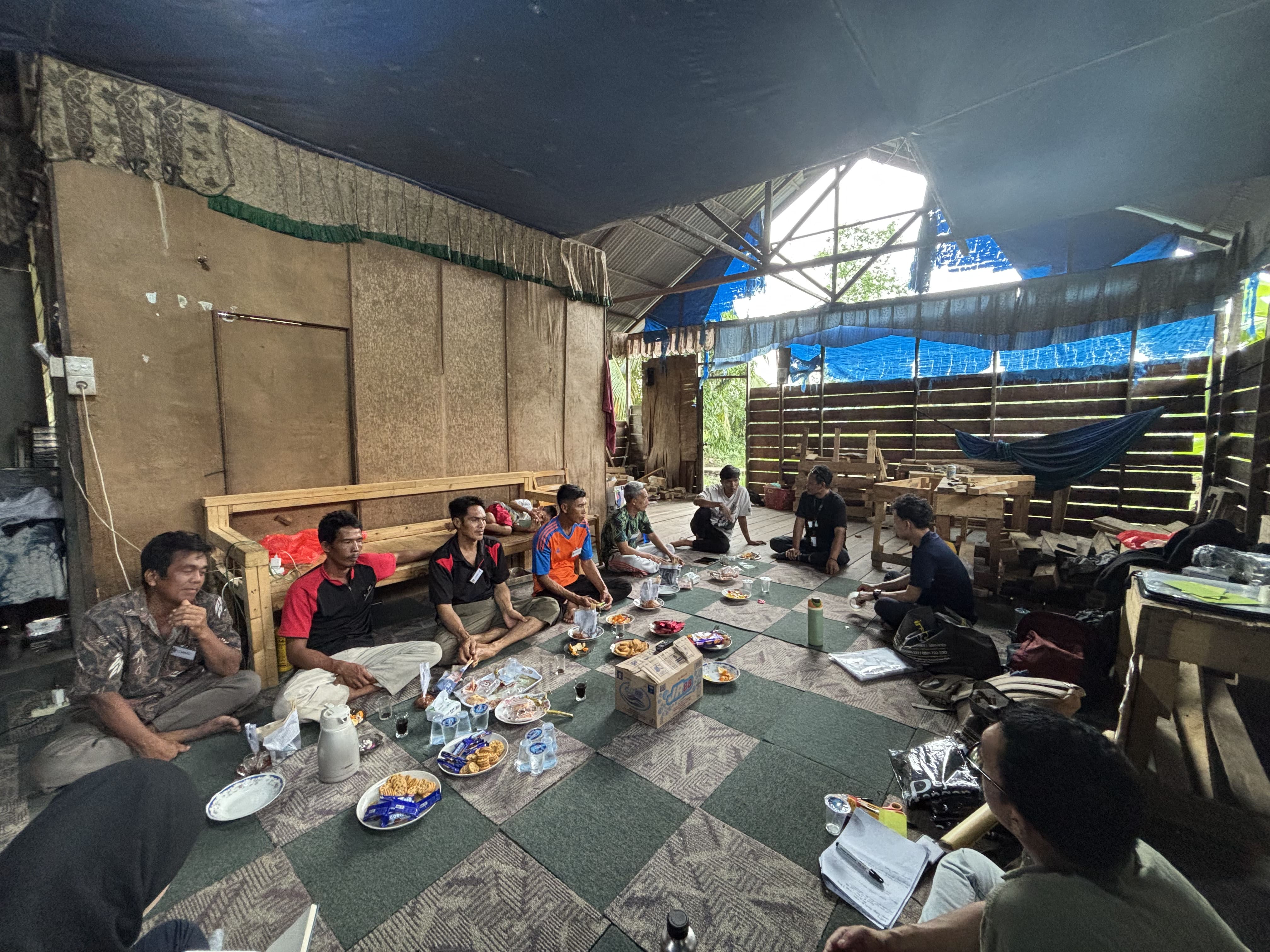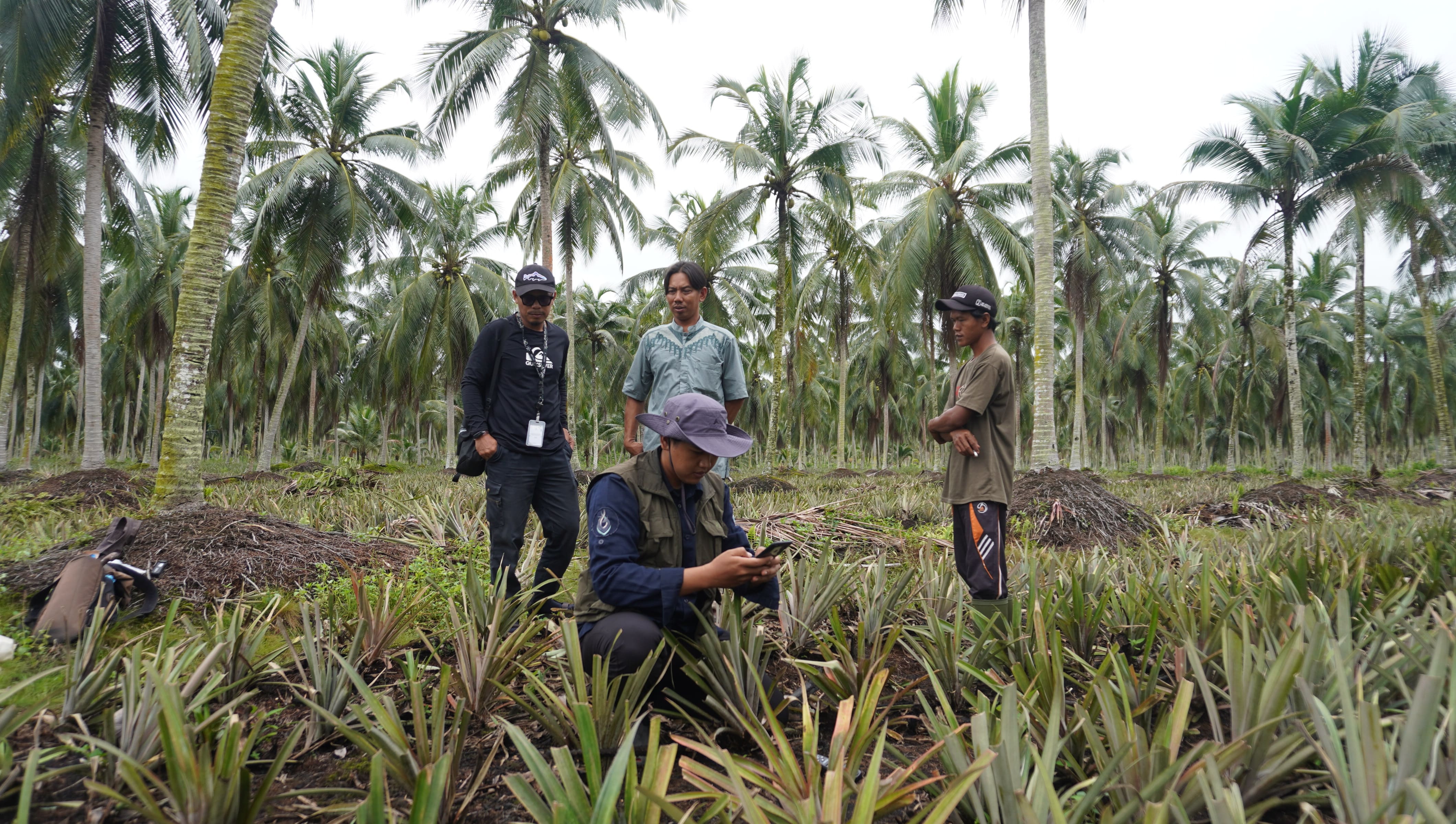Resilient Roots: How Indragiri Hilir’s Coconut Peatland Farmers Adapt to Change
October 15, 2025 15:05
Resilient Roots: How Indragiri Hilir’s Coconut Peatland Farmers Adapt to Change
Indonesia’s vast tropical peatlands are more than just carbon stores—they are home to resilient communities whose lives depend on the land. Spanning 13.43 million hectares, with more than half of it in Sumatra, these tropical peatlands play a vital role in maintaining ecological balance while supporting livelihoods that have lived through generations. Among others, Riau Province stands out for its extensive peatland and plantation landscapes. Here, coconut ranks as the second most important commodity after palm oil, contributing around 11% of Indonesia’s national production.
In the Regency of Indragiri Hilir (Inhil), coconut cultivation has long been part of local tradition. The cultivation system is predominantly managed by smallholder farmers using traditional, locally adapted practices passed down through generations. Unlike large industrial estates, smallholder plantations usually run on a modest scale—relying on manual labor, traditional methods, and natural soil conditions, with little use of chemical inputs, and limited access to bigger markets. Yet, within these humble systems, the wellbeing of nature and community livelihoods can continue to move hand in hand. The coconut trees that have long lined its peatlands are not just sources of income, but also a part of a living system where soil, water, and community are deeply connected with each other through close interactions.
Seeing the Bigger Picture through a Socio-Ecological Lens
With that in mind, we use the socio-ecological system (SES) perspective to help us look at Inhil's coconut supply chain dynamics. Through this perspective, human and non-human components within the system (i.e. farmers, soil, water, and crops) are seen as interconnected, not separated and independent from each other. Every activity done on the ground is part of the ecosystem—where a change in one aspect can affect the behaviour of another and vice versa, creating a feedback loop. In terms of resilience, this perspective helps us understand what keeps a community strong—how people and nature support each other to recover or avoid disruptions.

How Coconut Farmers Build Resilience in Inhil’s Peatlands
Through our fieldwork in Inhil, we observed how the coconut farming community demonstrates this deep connection in everyday life. One of the phenomena that we explored in our research is how the coconut farmers have long explored ways to establish a more resilient livelihood despite the natural dynamics of coconut plantations as well as peatlands’ vulnerable nature. To build economic resilience, they find their way to diversify their income through rotating between roles and planting diverse crops besides coconut.
One of the most common ways farmers strengthen their income is by diversifying their work roles. With coconut harvest periods spanning within every couple of months, coconut farming creates space for farmers to take on other work. Many farmers work as laborers on one another’s farm, usually by friends and neighbors. This way, farmers are able to have multiple income sources as they assume dual roles as both landowners and laborers. However, interestingly in some cases, laboring on others’ farms is not always paid in cash—as most modern views on livelihood would expect—but following a rotation agreement as a communal activity which signifies strong kinship within the community.
Another choice of practice is intercropping, or cultivating other crops alongside coconuts. Farmers plant betel nuts, bananas, potatoes, pineapples, and other varieties for household consumption and small-scale sale. These crops not only improve local food security but also serve as additional income sources, helping families remain steady when external factors—like weather or market fluctuations—affect coconut yields.
Together, these approaches form a picture of community-driven resilience, where traditional practices, cooperation, and local knowledge sustain both livelihoods and the land itself.

Continuing the Story from Inhil’s Coconut Farmers
These practices we found in Inhil are just one part of a larger story of connection between people and the peatlands they call home. Every decision—what to plant, how to share the work, when to harvest—reflects a deeper relationship between livelihoods and ecosystems.
Join us in uncovering more stories from Inhil’s peatland communities and how they adapt and thrive amidst change here. Also, don’t miss our webinar with Zentide and Greeneration Foundation, tomorrow, 16th October 2025 here, as part of our World Food Day 2025 campaign.
Stay connected with us on Instagram and LinkedIn for updates and field stories from the ground.
Category
Other
Topic
Agriculture
Farmer Empowerment
Peatland Agriculture Sustainability
Suboptimal Land
Management Strategy
Share This Article
RELATED
ARTICLE
Landmark Pluit Building-2nd Floor, Tower D6, RW.4, Pluit, Kecamatan Penjaringan, Jakarta Utara, Daerah Khusus Ibukota Jakarta 14440
Phone: (021) 6603926
WhatsApp: +62 815 8855 584
Privacy Policy
Copyrights © 2025 Tay Juhana Foundation